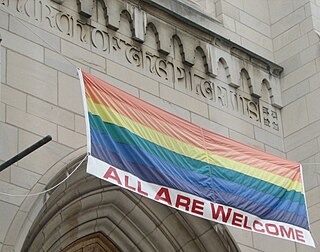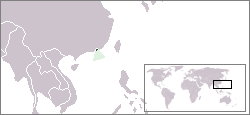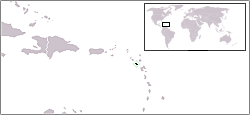Related Research Articles

Discrimination is the process of making unfair or prejudicial distinctions between people based on the groups, classes, or other categories to which they belong or are perceived to belong, such as race, gender, age, religion, or sexual orientation. Discrimination typically leads to groups being unfairly treated on the basis of perceived statues based on ethnic, racial, gender or religious categories. It involves depriving members of one group of opportunities or privileges that are available to members of another group.

Lesbian, gay, bisexual, and transgender (LGBT) movements are social movements that advocate for LGBT people in society. Although there is not a primary or an overarching central organization that represents all LGBT people and their interests, numerous LGBT rights organizations are active worldwide. The first organization to promote LGBT rights was the Scientific-Humanitarian Committee, founded in 1897 in Berlin.
Civil liberties are guarantees and freedoms that governments commit not to abridge, either by constitution, legislation, or judicial interpretation, without due process. Though the scope of the term differs between countries, civil liberties may include the freedom of conscience, freedom of press, freedom of religion, freedom of expression, freedom of assembly, the right to security and liberty, freedom of speech, the right to privacy, the right to equal treatment under the law and due process, the right to a fair trial, and the right to life. Other civil liberties include the right to own property, the right to defend oneself, and the right to bodily integrity. Within the distinctions between civil liberties and other types of liberty, distinctions exist between positive liberty/positive rights and negative liberty/negative rights.
Rights are legal, social, or ethical principles of freedom or entitlement; that is, rights are the fundamental normative rules about what is allowed of people or owed to people according to some legal system, social convention, or ethical theory. Rights are of essential importance in such disciplines as law and ethics, especially theories of justice and deontology.
Heteronormativity is the concept that heterosexuality is the preferred or normal mode of sexual orientation. It assumes the gender binary and that sexual and marital relations are most fitting between people of opposite sex.
Heterosexism is a system of attitudes, bias, and discrimination in favor of female–male sexuality and relationships. According to Elizabeth Cramer, it can include the belief that all people are or should be heterosexual and that heterosexual relationships are the only norm and therefore superior.
"Gay agenda" or "homosexual agenda" is a term used by sectors of the Christian religious right as a disparaging way to describe the advocacy of cultural acceptance and normalization of non-heterosexual sexual orientations and relationships. The term originated among social conservatives in the United States and has been adopted in nations with active anti-LGBT movements such as Hungary and Uganda.

Gay-friendly or LGBT-friendly places, policies, people, or institutions are those that are open and welcoming to gay or LGBT people. They typically aim to create an environment that is supportive, respectful, and non-judgmental towards the LGBT community. The term "gay-friendly" originated in the late 20th century in North America, as a byproduct of a gradual implementation of gay rights, greater acceptance of LGBT people in society, and the recognition of LGBT people as a distinct consumer group for businesses.
Libertarian perspectives on LGBT rights illustrate how libertarian individuals and political parties have applied the libertarian philosophy to the subject of lesbian, gay, bisexual and transgender (LGBT) rights. In general, libertarians oppose laws which limit the sexual freedom of adults.

Attitudes in Ireland towards lesbian, gay, bisexual, and transgender (LGBT) people are among the most liberal in the world. Ireland is notable for its transformation from a country holding overwhelmingly conservative attitudes toward LGBT issues, in part due to the opposition by the Roman Catholic Church, to one holding overwhelmingly liberal views in the space of a generation. In May 2015, Ireland became the first country to legalise same-sex marriage on a national level by popular vote. The New York Times declared that the result put Ireland at the "vanguard of social change". Since July 2015, transgender people in Ireland can self-declare their gender for the purpose of updating passports, driving licences, obtaining new birth certificates, and getting married. Both male and female same-sex sexual activity have been legal in the state since 1993. Government recognition of LGBT rights in Ireland has expanded greatly over the past two decades. Homosexuality was decriminalised in 1993, and most forms of discrimination based on sexual orientation are now outlawed. Ireland also forbids incitement to hatred based on sexual orientation.

Canadian lesbian, gay, bisexual, and transgender (LGBT) rights are some of the most extensive in the world. Same-sex sexual activity was made lawful in Canada on June 27, 1969, when the Criminal Law Amendment Act, 1968–69 was brought into force upon royal assent. In a landmark decision in 1995, Egan v Canada, the Supreme Court of Canada held that sexual orientation is constitutionally protected under the equality clause of the Canadian Charter of Rights and Freedoms. In 2005, Canada was the fourth country in the world, and the first in the Americas, to legalize same-sex marriage nationwide.

The rights of lesbian, gay, bisexual, and transgender (LGBT) people in the United Kingdom of Great Britain and Northern Ireland have developed significantly over time. Today, lesbian, gay, and bisexual rights are considered to be advanced by international standards. However, the country has developed an increasingly negative reputation regarding the status of transgender rights, with anti-trans rhetoric being described as "rife" in the UK media landscape.

Lesbian, gay, bisexual, and transgender (LGBT) persons in the British Virgin Islands face legal challenges not experienced by non-LGBT residents. Same-sex sexual activity has been legal in the British Virgin Islands since 2001.
LGBT movements in the United States comprise an interwoven history of lesbian, gay, bisexual, transgender and allied movements in the United States of America, beginning in the early 20th century and influential in achieving social progress for lesbian, gay, bisexual, transgender and transsexual people.

Lesbian, gay, bisexual, transgender (LGBT) rights in Scotland are generally in line with the rest of the United Kingdom, which have evolved extensively over time and are now regarded as some of the most progressive in Europe. In both 2015 and 2016, Scotland was recognised as the "best country in Europe for LGBTI legal equality".

Lesbian, gay, bisexual, transgender (LGBT) people in Hong Kong, may face legal challenges not experienced by non-LGBT residents.

Lesbian, gay, bisexual, and transgender (LGBT) persons in Montserrat face legal challenges not experienced by non-LGBT residents. Same-sex sexual activity has been legal in Montserrat since 2001.

Lesbian, gay, bisexual and transgender (LGBT) people in Mongolia face legal and social challenges not experienced by non-LGBT people, though there have been substantial improvements since the 1990s. Homosexuality was criminalised in Mongolia in 1961 through its Criminal Code. Following the Mongolian Revolution of 1990 and the peaceful transition to a democracy, homosexuality was legalised and awareness about LGBT people has become more prevalent. Hate crimes on the basis of sexual orientation and gender identity result in additional legal penalties. Hate speech based on these two categories has been outlawed in the country since 1 July 2017. Households headed by same-sex couples are, however, not eligible for the same legal protections available to opposite-sex couples.

In the U.S. Virgin Islands, Lesbian, gay, bisexual, and transgender (LGBT) rights have evolved substantially in recent years. Same-sex sexual activity has been legal since 1985, and also provides explicit legal protections against discrimination for LGBT residents since December 2022. Following the Supreme Court's ruling in Obergefell v. Hodges on June 26, 2015, which found the denial of marriage rights to same-sex couples unconstitutional, same-sex marriage became legal in the islands.
Homonationalism is often seen as the favorable association between a nationalist ideology and LGBT people or their rights, but is further described as a systematic oppression of queer, racialized, and sexualized groups in an attempt to support neoliberal structures and ideals. The term was originally proposed by the researcher in gender studies Jasbir K. Puar in 2007 to refer to the processes by which neoliberal and capitalist power structures line up with the claims of the LGBT community in order to justify racist, xenophobic and aporophobic positions, especially against Muslims, basing them on prejudices that immigrants are homophobic and that Western society is egalitarian. Thus, sexual diversity and LGBT rights are used to sustain political stances against immigration, becoming increasingly common among far-right parties. In Terrorist Assemblages, Puar describes homonationalism as a "form of sexual exceptionalism [dependent on the] segregation and disqualification of racial and sexual others" from the dominant image of a particular society, most often discussed within an American framework.
References
- 1 2 Mack, Eric (2008). "Individual rights". In Hamowy, Ronald (ed.). The Encyclopedia of Libertarianism. Thousand Oaks, California: SAGE Publications, Cato Institute. pp. 245–47. doi:10.4135/9781412965811.n150. ISBN 978-1-4129-6580-4. LCCN 2008009151. OCLC 750831024.
- ↑ Stone, Amy (2012). Gay Rights At The Ballot Box. Minneapolis: University of Minnesota Press. p. 25. ISBN 9780816675470 . Retrieved June 10, 2013.
- ↑ Tashman, Brian (12 March 2012). "Perkins Labels LGBT-Rights Initiative a 'Radical' Push for 'Special Rights for Homosexuals and Homosexuality'". People for the American Way. Retrieved June 10, 2013.
- ↑ Cobb, Michael (June 1, 2006). God Hates Fags: The Rhetorics of Religious Violence. NYU Press. p. 41. ISBN 9780814772669 . Retrieved June 10, 2013.
- ↑ Digitales Wörterbuch der deutschen Sprache. Accessed 2021-01-11
- ↑ "Constitution of the United States: Article 1, Section 9" . Retrieved 2008-11-24.
- ↑ Kucaradi, Ioanna. "Universality Versus Particularity? In The Light Of Epistemological Knowledge Of Norms" (PDF). United Nations University. Retrieved 2008-11-24.
- ↑ "Offensive Terminology to Avoid". GLAAD. Archived from the original on 2006-03-01. Retrieved 2006-05-30.